Polish writer Andrzej Sapkowski of The Witcher novels recently made a SHOCKING STATEMENT to the production team of The Witcher season 4 on NETFLIX. He criticized why characters like Jaskier (Dandelion) became GAY.
Polish writer Andrzej Sapkowski, the visionary behind The Witcher novels, has once again stirred controversy. In a recent interview dated October 2025, he addressed the Netflix adaptation's bold changes. Specifically, he targeted the portrayal of Jaskier, the bard known as Dandelion in his books. Sapkowski questioned why the character was depicted as gay, calling it a deviation from the source material.

Sapkowski's statement came during a promotional event for his upcoming book tour. He expressed frustration with modern adaptations altering core identities. "Dandelion is a lover of women, a charming rogue who seduces with words and lute," he said bluntly. The production team of The Witcher season 4 reportedly fell silent as he elaborated. His words echoed through social media, igniting debates among fans worldwide.
The Witcher series, starting with short stories in 1993, exploded in popularity via CD Projekt Red's video games. Netflix's adaptation, launched in 2019, promised fidelity but often diverged. Sapkowski sold adaptation rights for a one-time fee, later regretting it publicly. This latest critique highlights ongoing tensions between author and screenwriters. Season 4, filming in 2025, faces renewed scrutiny.
Jaskier, played by Joey Batey, became a fan favorite for his wit and loyalty to Geralt. In the books, Dandelion is unambiguously heterosexual, entangled in romantic escapades with noblewomen. His flamboyance stems from charisma, not sexual orientation. Sapkowski emphasized this in his novels, using the bard to satirize courtly love. Netflix's choice to explore queer themes resonated with some but alienated purists.

Sapkowski's shocking remark wasn't isolated. He previously criticized the games for romanticizing Geralt's world. Now, with season 4 underway without Henry Cavill as Geralt, changes feel amplified. Liam Hemsworth steps in, but Jaskier's arc remains central. The author urged the team to honor the bard's essence: a heterosexual ally in a monstrous realm. His plea underscores cultural clashes in global storytelling.
Fans reacted swiftly on platforms like Reddit and X. Some defended Netflix's inclusive approach, arguing fantasy evolves. "Art isn't static; Jaskier's queerness adds depth," one user posted. Others echoed Sapkowski, decrying "woke washing" of icons. The divide mirrors broader discussions on adaptation rights versus creative liberty. Season 3's Radovid romance already sparked homophobia accusations.
Sapkowski, now 77, hails from Poland's conservative literary scene. His works blend Slavic folklore with sharp social commentary. The Witcher saga critiques prejudice, including against mutants like Geralt. Yet, he views Jaskier's gay portrayal as unnecessary tinkering. In his view, the bard's heterosexuality humanizes him amid chaos. This stance fuels accusations of outdated views from progressive circles.
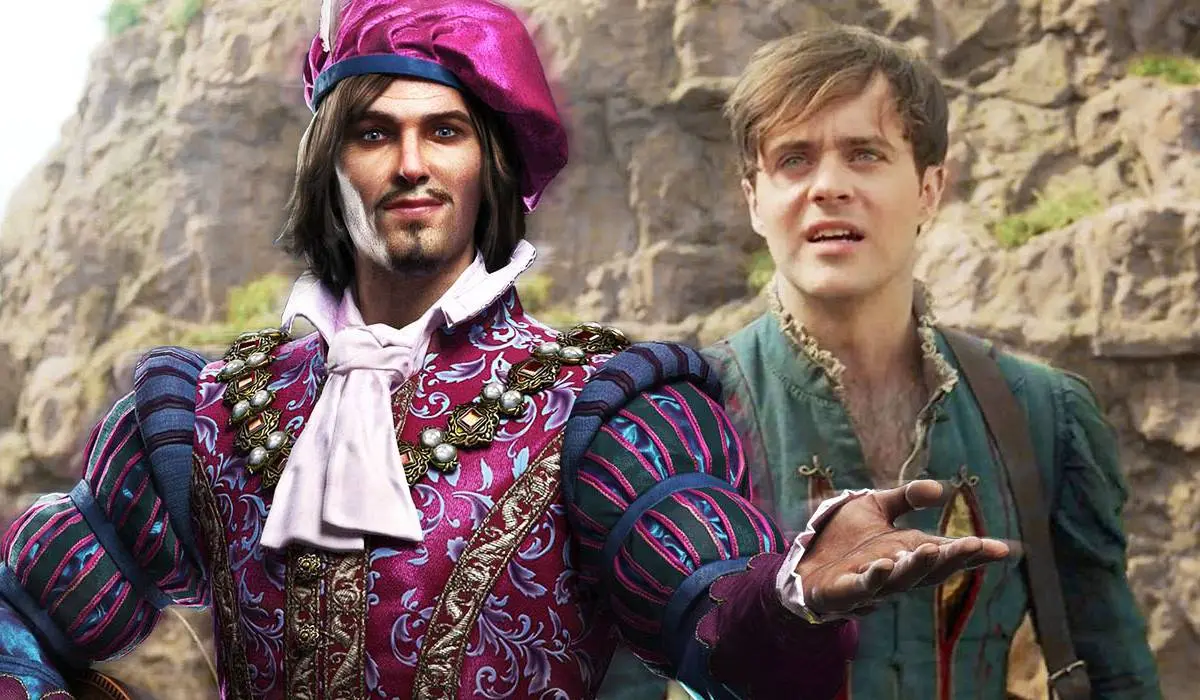
Netflix's production team responded diplomatically via a statement. "We respect Sapkowski's vision while crafting a universe for diverse audiences," they said. Showrunner Lauren Schmidt Hissrich has championed queer representation, citing Ciri's bisexuality in the books. However, Jaskier's shift lacks textual basis, making it a flashpoint. Season 4 promises more bard-focused episodes, testing this controversy.
The implications extend beyond one character. Adaptations like The Witcher balance commerce and canon. Sapkowski's lump-sum deal left him sidelined, a regret he voiced in 2019. His recent statement to the season 4 team feels like a last stand. It questions why fidelity matters in an era of reboots. Fans wonder if this halts further changes or sparks backlash.
Jaskier's evolution reflects broader TV trends. Streaming services prioritize inclusivity to attract viewers. In The Witcher, queer elements appear in sorceresses and side plots. Sapkowski acknowledges this but draws lines at mains. "Change for change's sake dilutes the soul," he told reporters. His critique arrives as season 4 wraps principal photography in Wales.
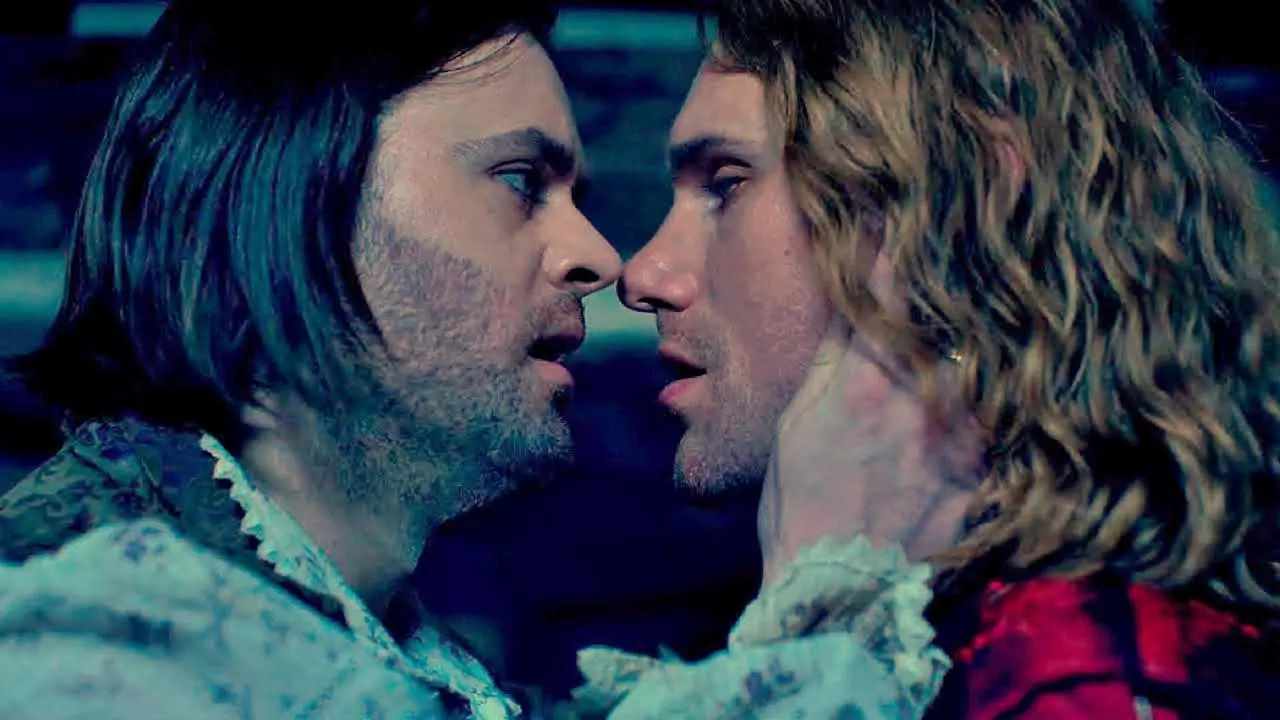
Social media amplified the shockwave. Hashtags like #SapkowskiSpeaks and #SaveDandelion trended. Polish outlets covered it extensively, praising his defense of authenticity. International press framed it as generational clash. Joey Batey, Jaskier's portrayer, stayed silent, focusing on promotion. The actor's chemistry with Cavill fueled early slash fiction, complicating perceptions.
Sapkowski's novels thrive on moral ambiguity. Geralt navigates gray areas, much like the adaptation debate. The author's statement isn't homophobic, per se, but protective. He fears diluting Dandelion's role as Geralt's foil—a straight man in a crooked world. This nuance gets lost in heated online discourse. Season 4's trailer teases bardic intrigue, heightening anticipation.
Critics of Netflix point to declining ratings post-season 2. Cavill's exit cited creative differences, fueling rumors. Sapkowski's intervention arrives amid recasts and strikes' aftermath. It spotlights power dynamics: authors versus Hollywood. Will his words influence reshoots? Unlikely, but they remind teams of roots. The Witcher endures through adaptation's fires.
Supporters of the change celebrate visibility. "Jaskier queering the narrative empowers fans," a GLAAD spokesperson noted. Sapkowski's critique, they argue, ignores evolving norms. Yet, the author counters that true diversity honors originals. His statement to the team was private initially, leaked via insiders. It underscores passion fueling The Witcher's legacy.
As season 4 nears December 2026 release, tensions simmer. Sapkowski plans a Witcher reread event, dissecting changes. Fans speculate on Jaskier's fate—will romance revert? Netflix's silence suggests commitment to the arc. This saga mirrors the books: monsters born from good intentions. Sapkowski's voice, once marginalized, now roars.

The controversy boosts buzz, ironically. Streaming metrics favor drama off-screen too. Sapkowski, ever the storyteller, weaves critique into promotion. His novels sold millions post-Netflix; this could spike again. Jaskier's gay arc, divisive as it is, humanizes fantasy. It asks: whose story is it? Author's, fans', or viewers'?
Reflecting on his career, Sapkowski laments lost control. "I birthed the world; they reshape it," he quipped. Season 4's team, chastened, may tweak subtly. Or not—adaptations march on. This statement cements his icon status: unyielding guardian of lore. The Witcher thrives on such sparks.
Global reactions vary. In Poland, Sapkowski's hailed as patriot; abroad, he's critiqued for conservatism. Yet, his works embrace outsiders—elves, dwarves, witchers. Jaskier's straightness fits that tapestry, per him. The debate enriches discourse, much like Geralt's contracts. Season 4 arrives amid this storm, promising bardic ballads anew.
Ultimately, Sapkowski's shocking words highlight adaptation's tightrope. Fidelity versus innovation defines modern fantasy. His plea to the team resonates: respect the bard's truth. Whether heeded or not, it fuels passion. The Witcher, like its witcher, persists—scarred, wise, eternal. Fans await the next verse.
Breaking: Arkansas Activist Kerri Rollo Faces Mounting Consequences After Vandalizing Charlie Kirk Memorial
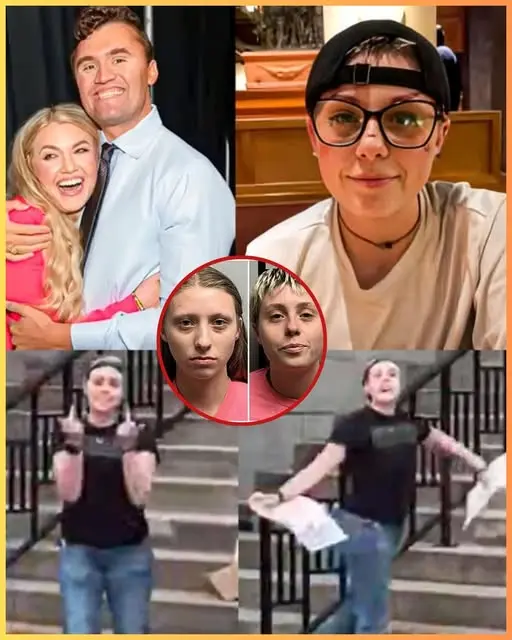
In the quiet town of Bentonville, Arkansas, a shocking act of vandalism has unraveled into a cascade of personal downfall for local activist Kerri Rollo. On September 16, 2025, just days after conservative firebrand Charlie Kirk's assassination, Rollo and her sister Kaylee were caught on video defacing a memorial at the Benton County Courthouse.
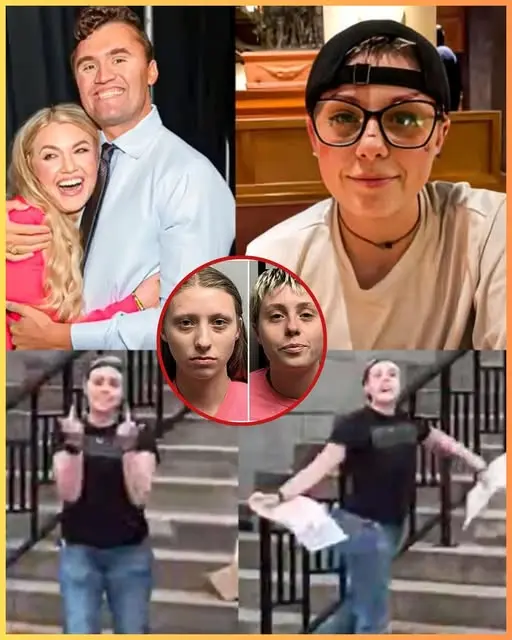
The makeshift tribute—candles, flowers, and signs honoring Kirk's legacy—was methodically destroyed. Rollo, 23, ripped posters, kicked over candles, and shouted obscenities, declaring Kirk "lived as he died—promoting violence." Her defiant middle finger to the camera captured the raw contempt.
This wasn't mere mischief; it was a bold statement from a self-proclaimed leftist at Arkansas Tech University. The video went viral, amassing millions of views and igniting outrage across social media platforms like X, where conservatives decried it as desecration.
Benton County Sheriff's Office acted swiftly. By September 18, both sisters were arrested on charges of first-degree criminal mischief, a misdemeanor punishable by up to one year in jail and fines. Kaylee, 22, faced an additional count of obstructing governmental operations.

The courthouse steps, once a site of solemn vigil, became a symbol of division. Justice of the Peace Joseph Bollinger condemned the act as "contempt and deliberate intolerance," vowing that such hatred wouldn't silence conservative voices.
As the story spread, Rollo's personal life imploded. Her employer, Bella's Table restaurant in nearby Bella Vista, fired her amid customer backlash. The eatery issued a statement distancing itself, emphasizing that her actions contradicted their community values.
Eviction followed suit. Reports confirmed Rollo was ousted from her Jonquilla Way residence, leaving her homeless and desperate. Local outlets like 5NEWS detailed how the swift public shaming accelerated her isolation.

In a twist of irony, Rollo turned to crowdfunding. A GoFundMe titled "FIGHT AGAINST F4CISM" launched on September 22, seeking $22,000 for legal fees. She claimed doxxing and First Amendment violations, pleading, "My sibling was fired—this is unconstitutional."
Donations trickled in, but sympathy was scarce. By late September, the campaign raised over $14,000, yet conservative donors trolled with mocking messages, turning it into a digital pile-on rather than a lifeline.
Social media amplified the schadenfreude. X users like @nicksortor posted, "A BIG can of FAFO has been opened," racking up 50,000 likes. Memes portrayed Rollo as the poster child for "actions have consequences."

Charlie Kirk's death on September 10 at Utah Valley University—gunned down during a speech—had already polarized the nation. Memorials nationwide became flashpoints, with similar vandalism in Phoenix drawing arrests.
Rollo's backstory emerged: a vocal activist with a prior drug paraphernalia charge in early September. Her non-binary identity (using "they" pronouns) fueled narratives of radicalism, though supporters argued she was targeted for free speech.
Legal proceedings dragged into October. Bond hearings set Kerri's at $15,000; she requested a public defender. Kaylee's was $7,500, with private counsel. Court dates loomed, promising more scrutiny.
By mid-October, the GoFundMe stalled at around $27,000, per X updates. Leftist backers contributed, but the overall tone remained hostile, with comments like "Enjoy your karma" dominating.

Bentonville's response was resolute. Sheriff Shawn Holloway declared, "We take vandalism of community memorials very seriously." The site was cleared, but the incident scarred the town's progressive-conservative divide.
Nationally, it sparked debates on cancel culture's double edge. Conservatives celebrated the fallout as justice; liberals decried it as mob rule, echoing Rollo's claims of harassment.
As November dawned, Rollo's pleas grew frantic. X posts showed her soliciting direct aid, but responses were cold. One viral thread mocked, "From vandal to victim—classic lib playbook."
The saga underscores America's deepening rifts. Kirk, founder of Turning Point USA, championed youth conservatism; his murder by a suspected leftist amplified fears of escalating violence.
Rollo's defenders dwindled. Even progressive circles distanced themselves, wary of endorsing property destruction amid grief. Her university remained silent, avoiding entanglement.
Financially ruined, Rollo faces mounting bills: legal, relocation, survival. Without steady support, her future hangs precarious, a stark contrast to her bold courthouse stand.
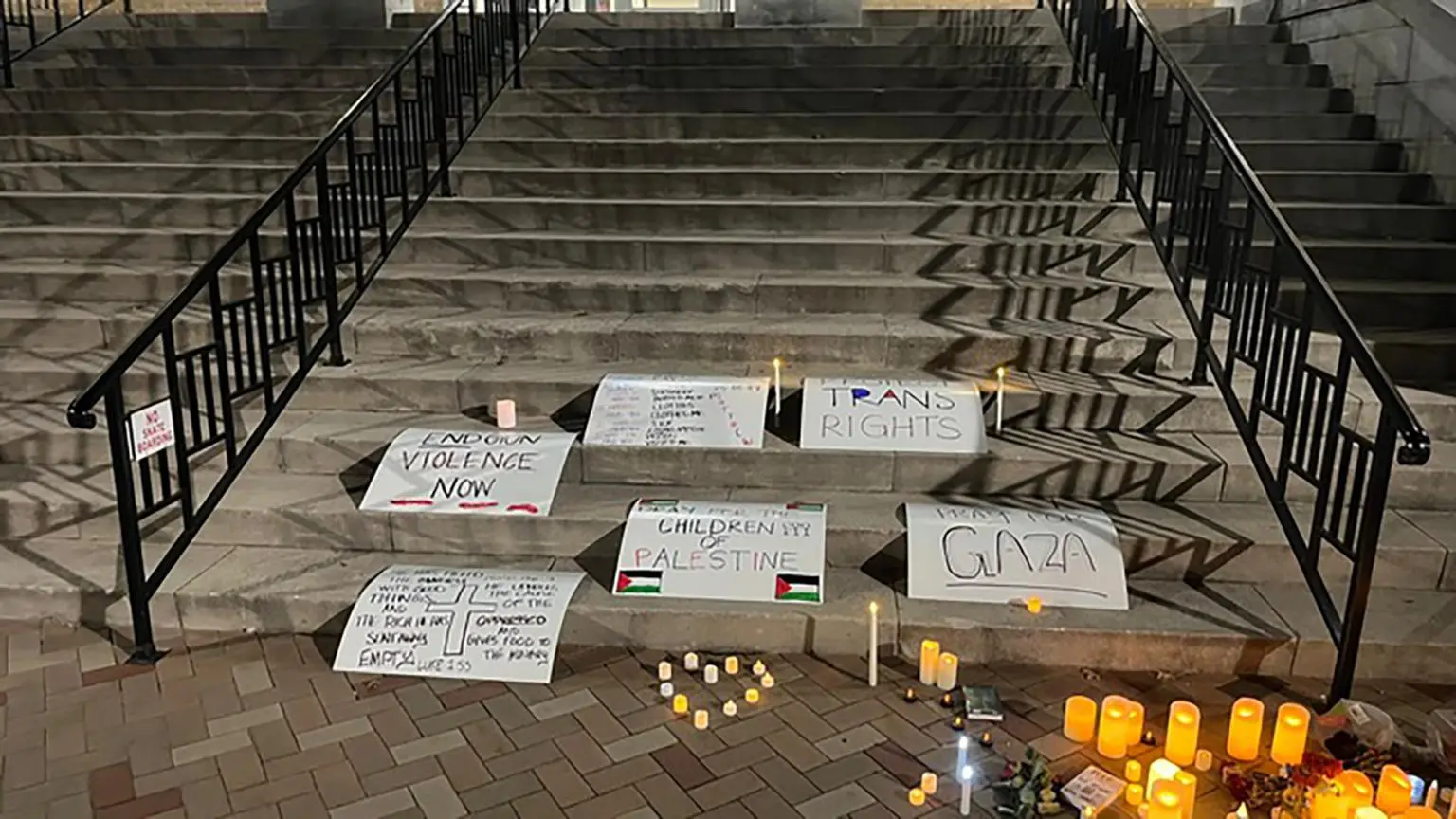
Critics argue this is poetic justice. "You don't trash a memorial and expect hugs," tweeted @IsabellaMDeLuca, garnering thousands of agreements.
Yet, a sliver of empathy persists. Some ask if the punishment fits—job loss and eviction for a misdemeanor? It raises questions on proportionality in polarized times.
Arkansas Tech, where Rollo studied, saw petitions for her expulsion, though none succeeded. Campus life for her, if any remains, is untenable.
The Benton County Courthouse now stands as a cautionary tale. Fresh memorials are guarded; vigils proceed with caution, honoring Kirk's unyielding spirit.
Rollo's story, from viral villain to virtual beggar, serves as a modern parable. In an era of instant infamy, one rash act can dismantle a life built over years.
As of November 4, 2025, no resolution in sight. Court outcomes pending, Rollo navigates homelessness and scorn. Her online cries echo unanswered.
This episode reminds us: grief is sacred, actions echo eternally. In Bentonville's shadow, the weight of consequences presses heavy, a sobering lesson for all.





